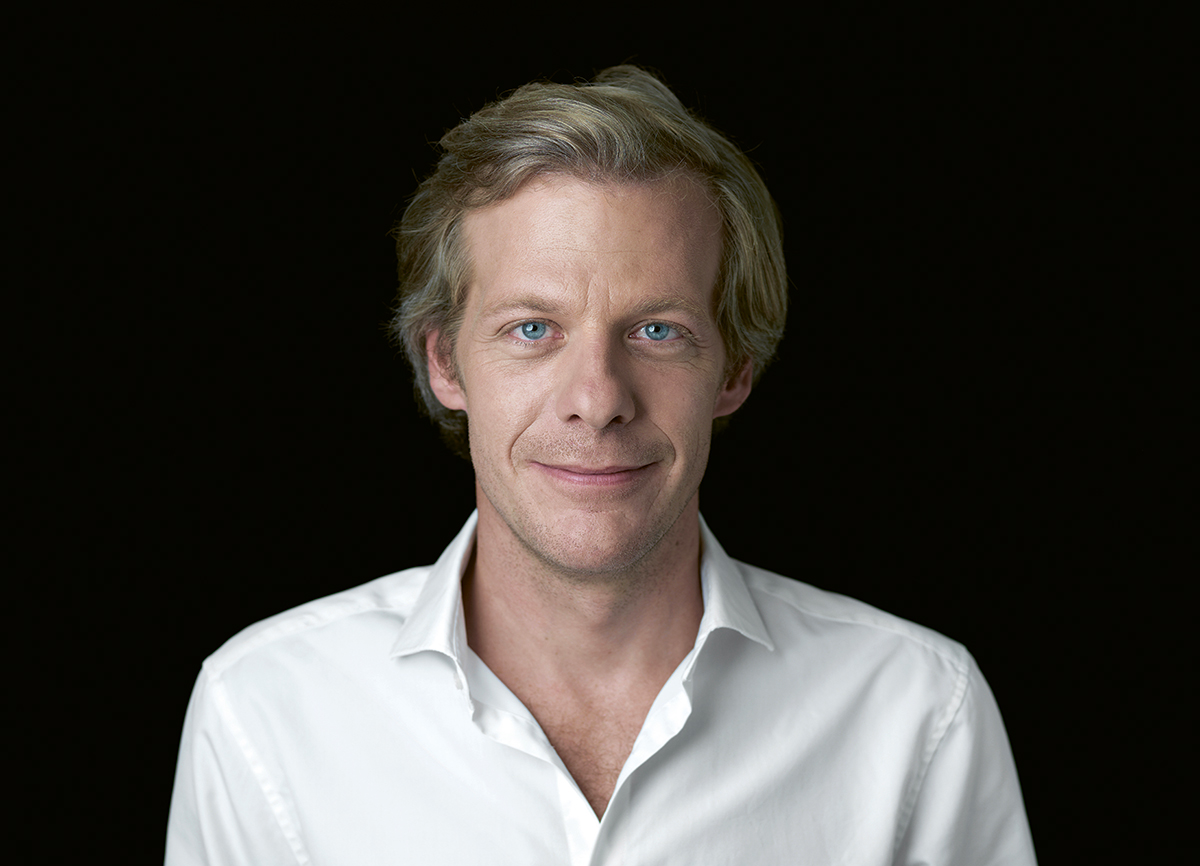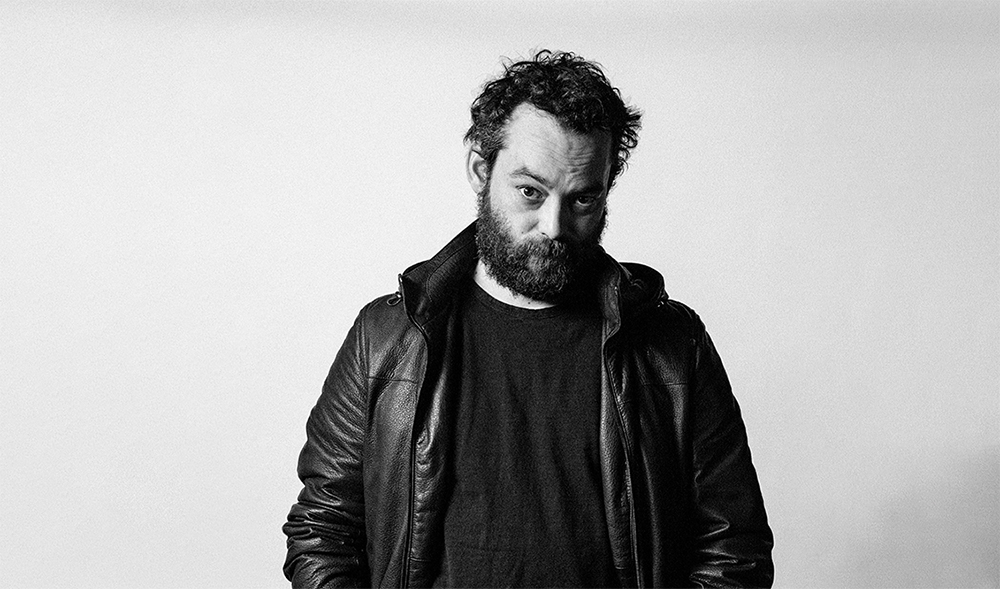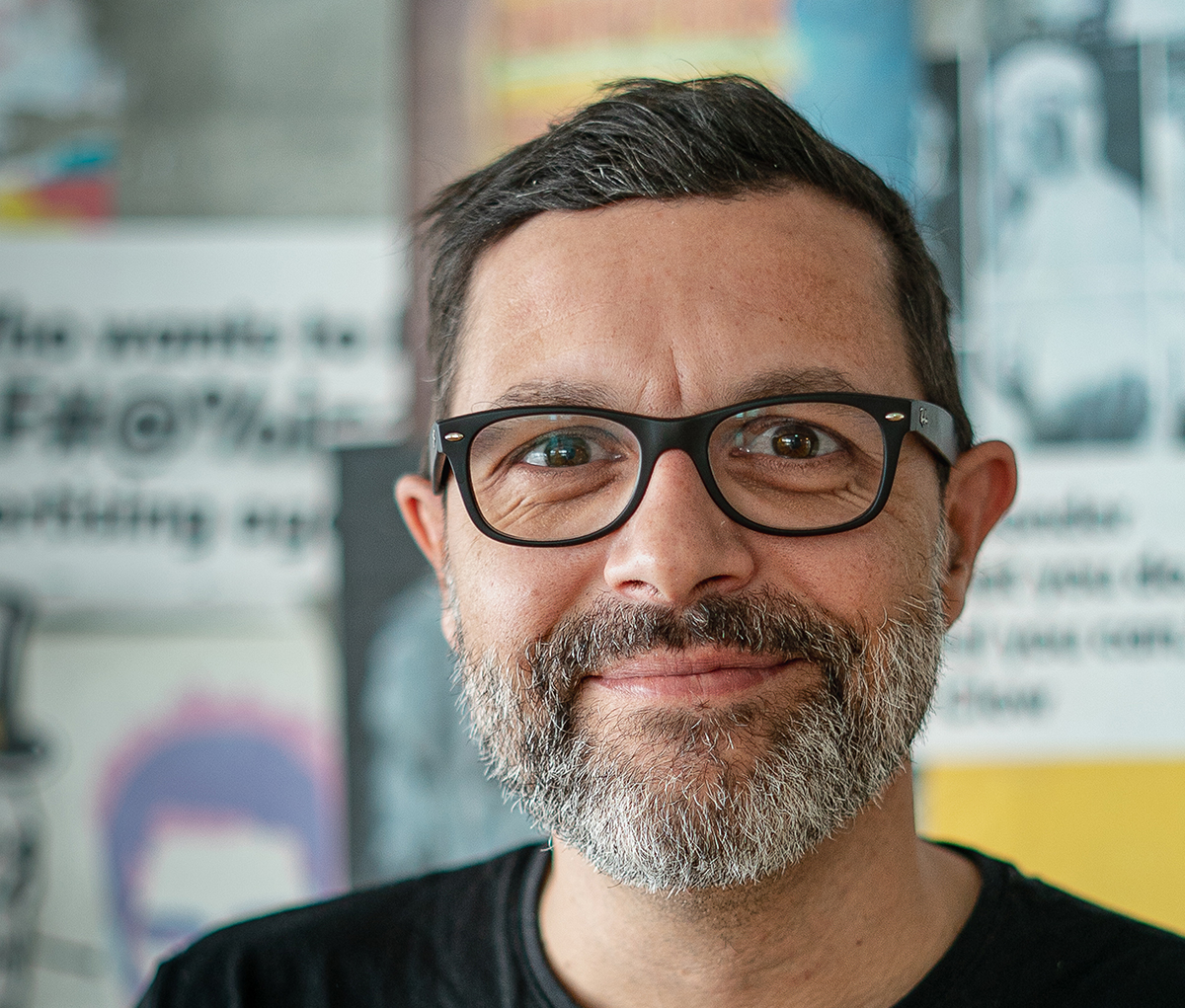"My wife is my critical gauge for new digital ideas"
Michael à Porta, Managing Director and Digital Consultant at Wetalkwithyou, faces our "13 Questions".

1. which print media do you privately subscribe to?
I look forward every month to a new issue of the magazine Trade Today in your hands. The question of how stationary retail can be supported with digital concepts is of great interest and concern to us at Wetalkwithyou. The magazine always provides good impetus and exciting insights into the issues that concern the retail industry.
2. the best book you have read recently?
I am a big fan of the book "Conversion Optimization - The Seven Levels to Conversion". In it, André Morys does an excellent job of showing the seven mental hurdles that have to be overcome in the human brain before a purchase can be made. This model helps us daily with conceptual work and can be used to test the effectiveness of applications, websites and online stores.
3. if you had not become an advertiser - what then?
During my professional reorientation in 2014 - after seven years at Unic - I was on the verge of deciding to take further training in the field of "Game Level Designer".
4. what was the best thing you did in the last five years?
The best thing about my job is that I'm constantly coming up with new, innovative ideas and, in most cases, implementing them. I'm always amazed at all the things we've implemented in the last five years. Highlights include various campaigns for Porsche, in which we raffled off a Porsche Panamera, the #zuteuer campaign for Denner's 50th birthday, and a Christmas campaign for Vögele Shoes that attracted over 65,000 participants.
5. what are you sorry for?
When I moved into the advertising industry, I was amazed at the massive amount of effort that goes into a pitch. What I'm really sorry for over the past five years are the countless great ideas and the immense heart and soul that we invested but unfortunately didn't win.
6. what qualities make you a good advertiser?
My - not very advertising-typical - career as a business information scientist today enables me to recognize technical correlations and digital possibilities and to incorporate them into our campaigns. This ability, coupled with a bit of creativity, ensures that a campaign can be played out entertainingly, efficiently and consistently across all online and offline channels.
7. what do you think about influencer marketing?
As we all know from our own experience, referral marketing is one of the most efficient advertising tools. Furthermore, the past few years have shown that well-implemented influencer campaigns can be very successful. In my opinion, however, the discipline is now suffering from massive inflationary tendencies. When I see Instagram profiles with 2,000 followers showing successive wellness, watch, and car photos, I really wonder how effectively such advertising budgets are still being used.
8. Does the classic agency model have a long-term future?
We humans are creatures of habit and also want to operate in the working world in the way we are used to. "Never change a running system," as a saying in software development beautifully puts it. I see it the same way with regard to the classic agency model. In five years, there will still be customers who prefer a classic agency model. It's just that the customer group is getting smaller and smaller, which is already becoming apparent today. Young, innovative customers who have learned their trade in modern companies are used to agile processes (supported by digital tools) and will also want to work this way in the future.
9 What is currently overestimated?
As a technology fan, I'm fascinated by AR and VR applications. Such applications can offer enormous added value in the right use case and will shape our interaction behavior enormously in the future. In terms of an advertising campaign, the use case has to be very special for a corresponding - usually very cost-intensive - application to be worthwhile. In addition, I believe that AR and VR applications embedded in advertising campaigns only attract the attention of a very limited target group and that the attention span is exhausted after a very short time. As soon as the curiosity (what is hidden in the application) is satisfied, the use case is no longer interesting.
10. what do you still want to achieve at all costs?
Since the founding of Wetalkwithyou, we have tried to develop our digital concepts not only for desktop or mobile devices, but also experiment with alternative surfaces such as shop windows, tables, mirrors or poster pillars, which we equip with touch functionality. We have been able to implement some very exciting projects and I hope that we will be able to realize many more interactive digital signage implementations with our partner Christinger in the future.
11. what was the best decision of your life?
When I started my studies at the University of Zurich, I originally wanted to study economics. After the first two weeks, a slight uncertainty made itself felt as to whether I had chosen the right field of study. A classmate from high school persuaded me to attend a lecture in Java programming, which changed my life in a sudden and professional way. A great passion arose, although at that time I knew at most how to open a word processing program on a PC.
lets.
12. when you have an idea, how do you know it is good?
My wife is very critical of the rapid digitization of our society and finds it difficult to get excited about the relevant topics. She is my critical yardstick for new digital ideas. If I can bring a smile to her face, I'm sure to pursue an idea further.
13: Where do you see the biggest challenge for the advertising industry at the moment?
Some traditional advertising agencies have been working intensively for more than ten years to improve their digital competence.
via in-house departments or cooperations with digital agencies. This often brings together two worlds - human and professional - that work together more poorly than well. In my opinion, this circumstance can be seen in many advertising campaigns. Out of a sense of duty, the digital channels are also covered, but no common foundation can be seen that ensures the seamless linking of the online and offline channels. I think this issue needs to be resolved in the coming years. We need to create interdisciplinary teams that cover the competencies from both worlds and work well, or rather closely and seamlessly together. This will create good "Noline concepts" that no longer think in separate silos on- and offline. We are also in this transformation process in our very well-rehearsed collaboration with ViznerBorel. The aim is to create a consolidated agency model in which all departments, from strategy and consulting to creation and media planning, are made up of online and offline specialists. In the future, work will no longer be done in separate online and offline departments, but in merged and well-rehearsed teams.
Michael à Porta was born in 1978 and studied business informatics at the University of Zurich. After working in various positions as an application developer, he joined the Internet agency Unic in 2007, where he worked for seven years as a project manager and consultant, helping a wide range of clients such as PKZ, Pfister, Interdiscount, Microspot, Hornbach, Manor and Transa to enter the online retail market. In 2014, a switch from technology-heavy large-scale IT projects to marketing took place. In the process, he founded the digital agency Wetalkwithyou with the advertising agency ViznerBorel.








